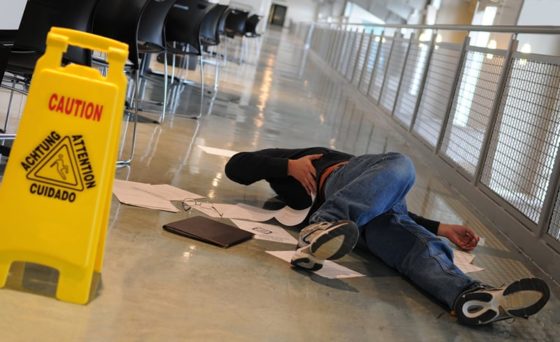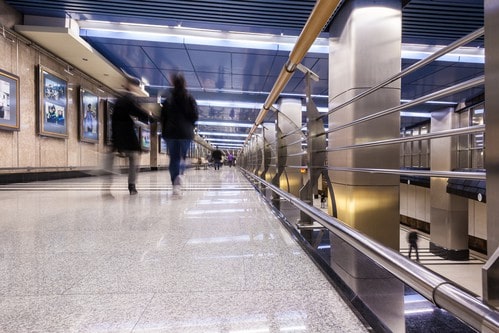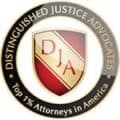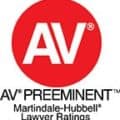Premises Liability Lawyers in Chicago, IL
Willens & Baez is a top-rated law firm with an award-winning team of Chicago Personal Injury Lawyers and Accident Attorneys who can help you when you have been injured in a premises liability case. Since we charge no legal fees, unless and until we succeed in obtaining a monetary recovery for you, you can count on us fighting hard to get you the compensation you need and deserve.
We know that an injury case has the potential to take over a person’s life, making it difficult to move forward. People turn to us for the dedicated, caring help they require, regardless of the type of accident they were in or the type of injury sustained. We want to help them take control of their situation so they can focus on what matters most — getting back on track. This is also why many of our firm’s cases are referred to us from other lawyers and law firms who trust us to handle their friends, family members and clients’ personal injury cases.
Why Let Willens & Baez handle your Premises Liability Case?
If you or a loved one has suffered an injury due to the negligence of a property owner, you need a professional who has years of experience in this area of law. That is where Willens & Baez comes in. Here’s what we can do for you:
Call (312) 957-4166 For a Free Consultation
Premises Liability Lawyers In Chicago, IL
As a visitor or customer on someone’s property, you expect to be protected. But when a property owner fails to keep you safe, you may deserve compensation. Let Willens Injury Law help you.
When you go to work, go shopping, or visit a movie or restaurant, you should be safe from harm. If the property owner was negligent and you get injured as a result, they may be legally obligated to compensate you. Towards that end, Willens & Baez can help you claim the compensation you deserve by developing a premises liability case. Talk to us in a free consultation if you have any questions about your situation. Or if you would like to learn more about what makes up a premises liability case, read on for an overview.
What Is Premises Liability?
In simple terms, premises liability is the legal concept by which property owners have a duty to keep their premises reasonably safe so that their occupiers or guests do not suffer foreseeable injuries. This means that a property owner (or manager) must either:
- apply reasonable care to detect and fix hazardous conditions on their premises, or
- provide guests with ample warnings of the hazardous conditions on the premises.
If a property owner was negligent and failed this duty, and if that negligence has led to a guest’s injury, the owner or manager may be held liable.
In Illinois, the law on premises liability is 740 ILCS 130 or the Premises Liability Act. This gives you the right to file a legal claim against a negligent property owner or manager that you believe has caused your injury.
Examples Of Accidents Under Premises Liability
Many accidents seem innocent at first, but they may actually be a result of a property owner’s negligence. Here are some scenarios that may be considered premises liability cases:
I find Matt to be a very hard worker, incredibly bright and the type of person that when someone gives him a problem, it is no longer theirs – it is his.
– M.H. a defense attorney
You may notice that premises liability accidents can happen almost anywhere – at stores, restaurants, bars and clubs, offices, apartment buildings, even at the home of someone you know and trust.
Facing a negligent property owner can be complicated, whether it’s a large company or a neighbor down the street. Don’t let this discourage you from looking at your legal options, especially if you truly need reimbursement for your injuries. Talk to a reliable attorney who can guide you on making the best steps.
Elements Of A Premises Liability Case
Just because you got injured on someone else’s property does not automatically mean that he or she is liable. You must prove these specific elements for your premises liability case to be valid:
- That the property owner had a duty of care to you as a visitor
- That there was a dangerous condition on the premises
- That the property owner (or whoever was in control of the premises) knew or should have known of the dangerous condition
- That the owner failed to use reasonable care to detect, fix, or warn of the danger
- That this failure resulted in your injury as a guest or visitor
Proving these elements takes an in-depth knowledge of the law and how they apply to your case. An injury lawyer with experience in premises liability accidents can help you establish these elements and build you a winning case.
Were You A Legal Guest?
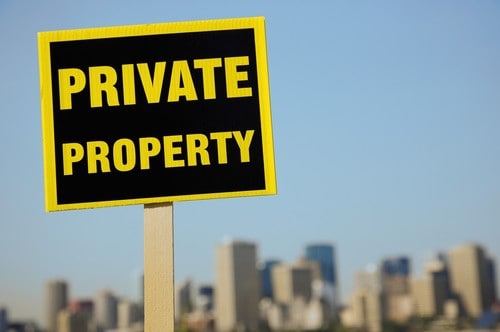
Property owners have no duty to protect trespassers or those who enter their property without permission. The only duty that property owners owe trespassers is to avoid getting them injured through “willful and wanton conduct. ”Illinois courts have also found exceptions to this trespasser rule, such as if the trespasser was a child who was too young to understand the law and the danger in the property.
Thus, except in rare exceptions, only legal visitors can pursue a premises liability claim.
Drowning Is Found To Be Leading Cause of Accidental Death in Young Children
Although drowning is the leading cause of injury death for children under the age of five, and one of the top causes of injury death for all children, these drowning deaths are generally preventable.
The loss of a child is a terrible tragedy, and even more so when it is preventable.
The Hard Facts
In the US, about 3500 people die each year in unintentional, non-boating drownings. About one in five of these people are children 14 and younger. And about five times more children suffer near-drownings that can result in permanent brain injury and other injuries.
The children most at risk are those aged 1-4. About 30% of all unintentional injury deaths in this age group are due to drowning. Most of these children drown in home swimming pools.
Preventing Deaths
With this high number of accidental deaths and even higher numbers of injury deaths, prevention is crucial. It’s also straightforward. Swimming pools are naturally attractive to children, who approach them with curiosity or memory of enjoyment from spending time at the pool with parents.
Supervision, of course, is crucial to saving the lives of children this age, but so is a basic level of safety features. A fence separating the house from the pool reduces the risk of a 1-4-year-old drowning in the pool by 83%. For above-ground pools, simply removing the access ladder protects most children. Toys, flotation devices, and other attractive objects should be removed from the pool when adults leave the area.
Defenses In A Premises Liability Case
When you decide to bring a premises liability case forward, the property owner (defendant) may defend themselves using certain elements involving the case. You’ll need to anticipate a premises liability defense using the following arguments:
This defense states that if you were aware of the dangerous condition in the premises yet ignored it, you already assumed or accepted the risk of getting injured.
The defendant may say that the dangerous condition in the premises was so “open and obvious” that they did not have to warn you about it.
You’ve probably experienced going to an amusement park, a public pool, a sports complex, or any similar establishment that required you to sign a waiver. This waiver typically releases the establishment from injury liability, so if you were injured on their premises, the establishment could no longer be held liable.
Certain laws may grant immunity to certain properties. For instance, the Illinois Recreational Use of Land and Water Areas Act grants immunity to owners of hunting or conservation property.
This happens when you are partially at fault in the accident. If the defendant establishes that you contributed to the accident, but your contribution was less than 50 percent, your compensation may be reduced accordingly. For instance, if you were 20 percent at-fault, your compensation will be reduced by 20 percent.
This also depends on your share of the fault. If the defendant establishes that you contributed more than 50 percent to the accident, you may not be able to collect compensation at all.
As discussed above, trespassers have no legal right to claim compensation under premises liability.
Any of these defenses can critically damage your claim. This is why it’s important for you to choose a premises liability lawyer who has experience in this field. Your attorney should be able to meet these defenses with robust arguments and the skill to make the law work for you.
Chicago Residential Premises Liability Attorney
Have you been injured when visiting someone else’s property? Was your injury due to the state of the property, such as a broken step, debris, grease or icy patch?
Was your injury due to a broken step or poor lighting conditions? If so, you may be able to get compensation for your injuries. Compensation may include money for medical bills, lost wages, pain, suffering, and more.
At Willens & Baez, we are proud to fight for the rights of victims injured due to the negligence of another person or company. If you want to talk to a Chicago premises liability lawyer in person about the details of your case, please call (312) 957-4166 for a free consultation.
Premises Liability and Property Owner’s Responsibility
In Illinois, all property owners owe a duty of reasonable care to visitors of their property, and if they do not live up to this duty, injury victims may have grounds to bring a premises liability action. Property owners have a responsibility to make sure their property is free of hazards that can cause injury. This includes the risk of:
- Slip and Fall
- Trip and Fall
- Criminal Injury Resulting from Negligent Security
- Fires
- Poisoning by Lead Paint or Mercury
- Swimming Pool Injuries
In many states, a distinction is made between invitees, people who are invited to a property for the purpose of business, and licensees, people who are invited for social purposes, but not in Illinois. In Illinois, residential property owners have an equal responsibility to commercial property owners. This includes landlords as well as individual property owners.
What You May Be Entitled To
Premises liability accidents – such as slip-and-falls and dog bites – often sound straightforward and simple. Not many people realize how serious the injuries can be and how great the losses the injured may suffer. Depending on the type of accident, the injuries can include life-altering conditions such as traumatic brain injury (TBI), spinal cord injuries, serious fractures, severe wounds and bleeding, paralysis, and amputation.
If you have or someone in your family has suffered from such an injury, you know it’s not an easy burden. You may deserve to be compensated for the following and more:

Don’t dismiss your accident as a simple slip-up, especially if it has landed you or your loved one in the hospital and cost you a significant amount of money. Let a reliable attorney assess the value of your case and determine your best options for obtaining compensation.

